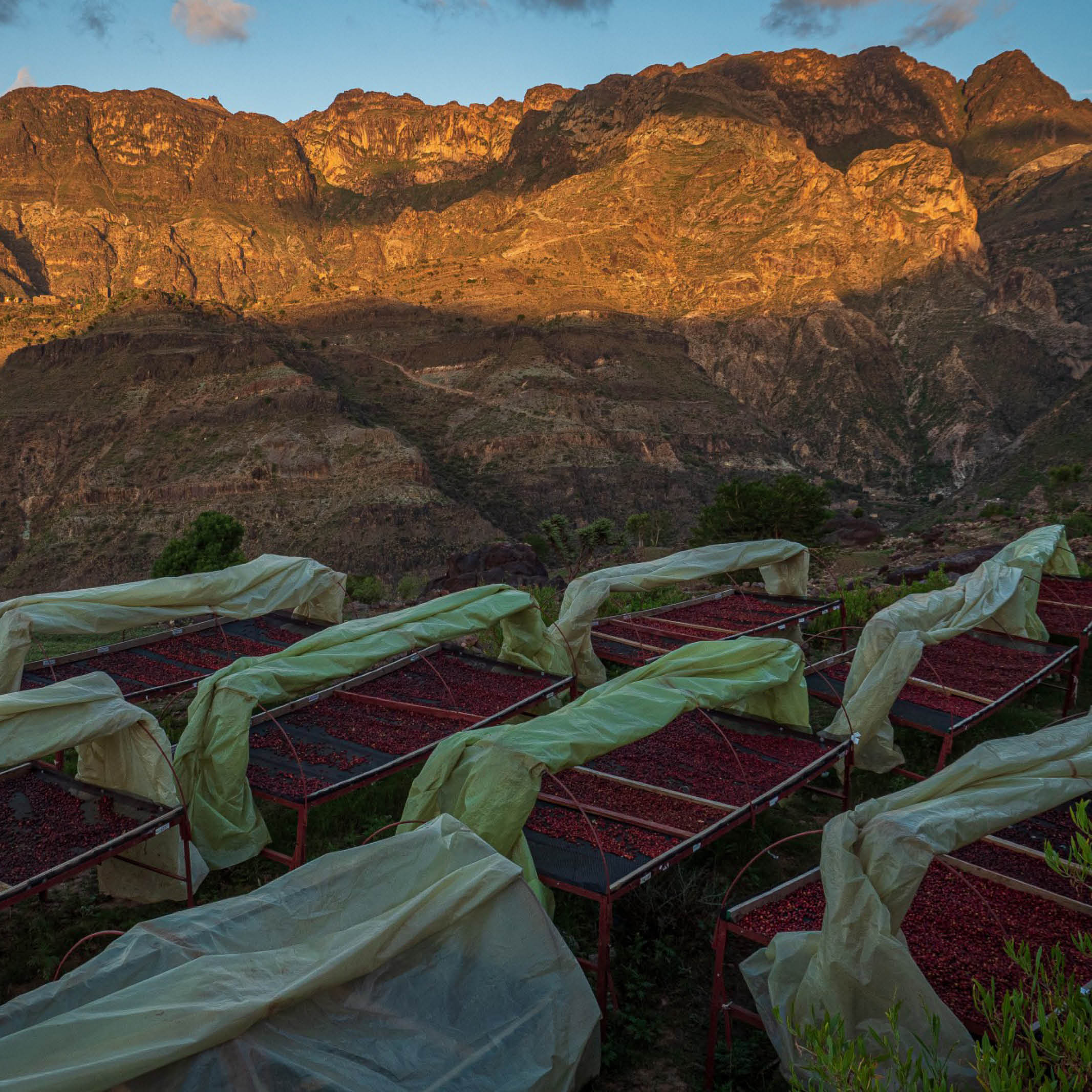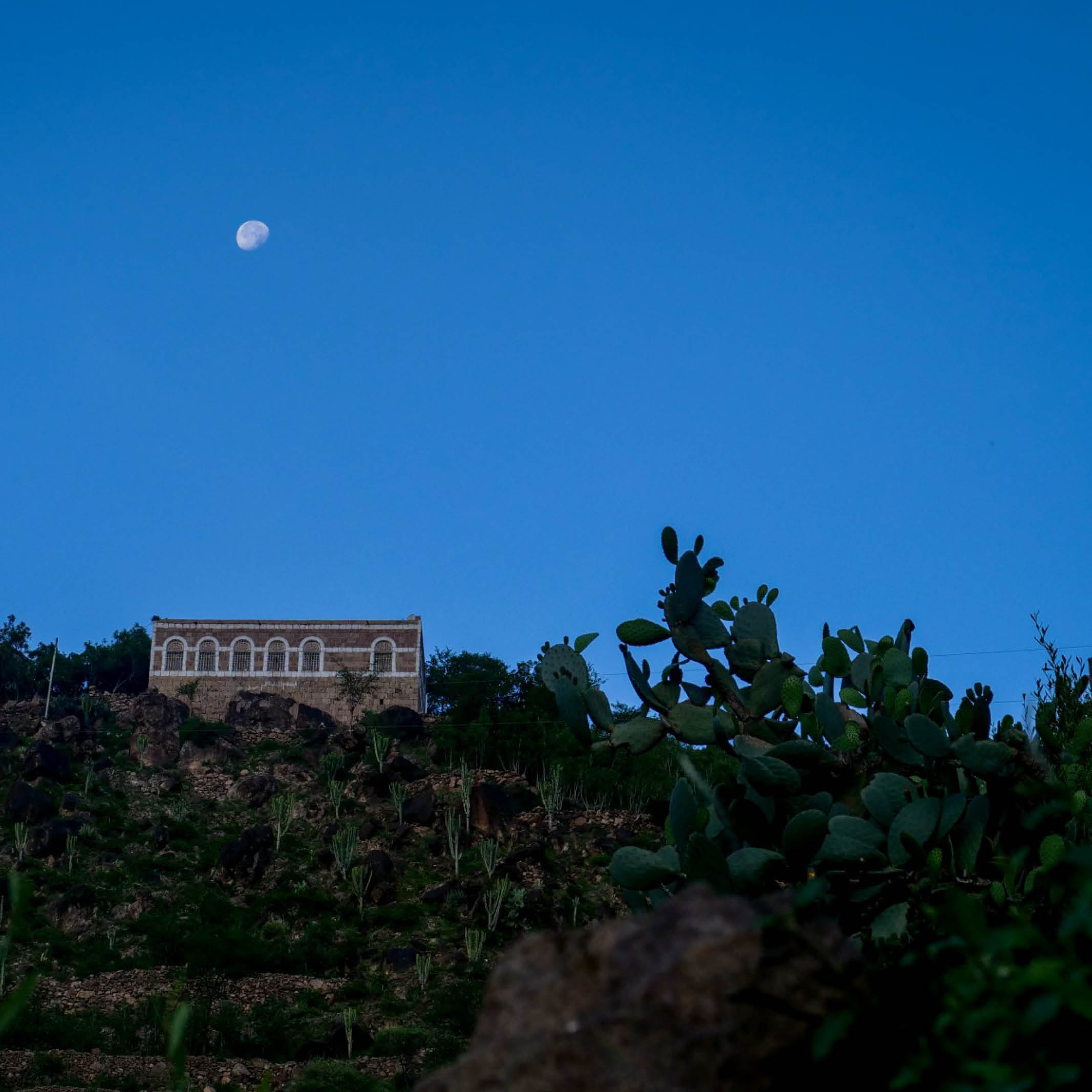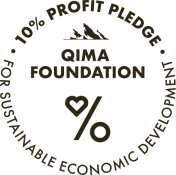





Jury code : 6404

jury score :
Genetics :
Process :
lot size :
VILLAGE :Bani Ofair
REGION : Ans
GOVERNORATE : Dhamar
ALTITUDE :1800-2000masl

FLAVOUR PROFILE



Yemenia is a new mother population within the species of Coffea arabica that is found exclusively in Yemen, and represents an ocean of unexplored genetics and future varieties that have the potential to reshape the world of arabica for centuries to come.
Read the Scientific paper here.
The discovery of Yemenia was part of Qima Coffee’s R&D programme with Dr Christophe Montagnon, the aim of which was to map out Yemen's coffee genetic landscape. Qima conducted the largest genetic survey in Yemen's history, covering an area of over 25,000 sq km.
Through rigorous research in coffee genetics, we discovered that there exists a mother population of Coffea arabica that never left Yemen, and remains native to the land till date: Yemenia – meaning Yemeni mother in Arabic.
Yemen’s coffee land has a rough climate, displaying both high and low temperatures in the extreme range of coffee growing areas worldwide, together with one of the lowest global rainfall levels. There is no doubt that this environment has favoured resilient landraces, not only between the 1400s (coffee first introduced to Yemen) and 1700s (when today’s main worldwide coffee varieties were taken out of Yemen), but also during the last 300 years of coffee cultivation and propagation. The unveiling of Yemenia, which has not been observed anywhere else in the world so far, opens the gate to previously uncharted genetic diversity within C. arabica in general, and Yemeni coffee in particular. Further research is ongoing to determine and identify potential varieties within Yemenia group.
Slow dried is a variation of natural processing, wherein the collected cherries are dried slowly for long durations i.e. more than 25 days on raised parabolic drying beds. With continuous moisture monitoring and temperature control, these cherries are carefully turned throughout this time to produce a clean cup profile, with clearly discernible flavours.
Bani Ofair is a village in the Ans region of Yemen. It has rugged yet lush terrain. Due to its remote location, there are few roads leading to and from Bani Ofair. The village is fairly cut-off from the others, with limited infrastructure.
Ans is a region within the governorate of Dhamar. Coffee farming is widespread in the region and many families rely on it completely financially. There are around 60 farming families here growing coffee, corn, potatoes and qat. This region has been growing and cultivating various types of crops for over 7,000 years. There is a shortage of water in the region which impacts farmers and their families. It is often the women and children who must source the clean water, either bringing it back in barrels or using animals to help share the load.
Dhamar, Yemen's historic governorate, lies between Sana'a and Taiz. It boasts ancient civilizations dating back to 6,000 BC, with remarkable archaeological sites. Agriculture thrives here, with coffee being a standout crop. Renowned for its exceptional taste, Dhamar's coffee is grown in regions like Ans, Bani Fadhl, Magrib Ans, Automa, and Jabal Ash Sharq, benefiting from the diverse topography of plains and mountains.